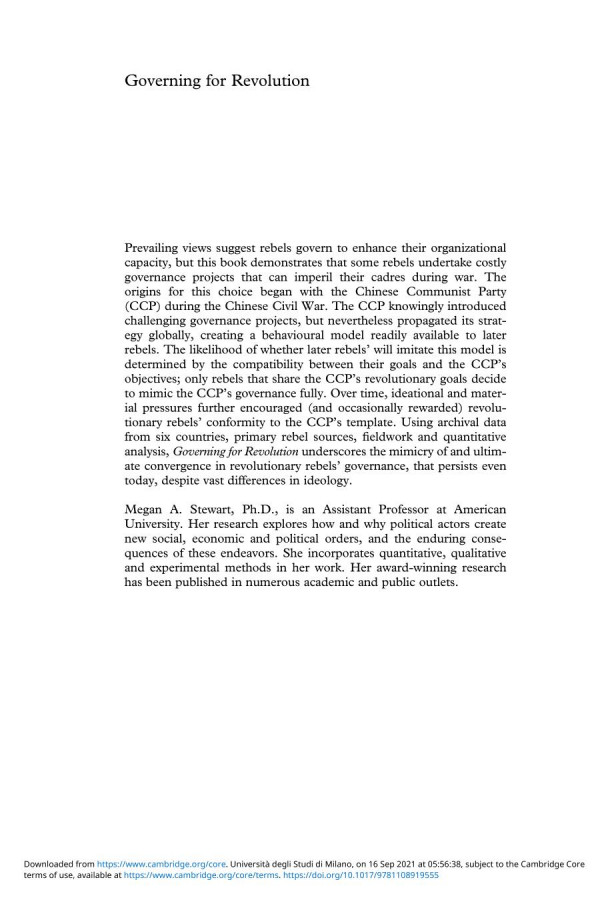

Most ebook files are in PDF format, so you can easily read them using various software such as Foxit Reader or directly on the Google Chrome browser.
Some ebook files are released by publishers in other formats such as .awz, .mobi, .epub, .fb2, etc. You may need to install specific software to read these formats on mobile/PC, such as Calibre.
Please read the tutorial at this link: https://ebookbell.com/faq
We offer FREE conversion to the popular formats you request; however, this may take some time. Therefore, right after payment, please email us, and we will try to provide the service as quickly as possible.
For some exceptional file formats or broken links (if any), please refrain from opening any disputes. Instead, email us first, and we will try to assist within a maximum of 6 hours.
EbookBell Team

5.0
20 reviewsPrevailing views suggest rebels govern to
enhance their organizational capacity, but this book demonstrates that
some rebels undertake costly governance projects that can imperil their
cadres during war. The origins for this choice began with the Chinese
Communist Party (CCP) during the Chinese Civil War. The CCP knowingly
introduced challenging governance projects, but nevertheless propagated
its strategy globally, creating a behavioural model readily available to
later rebels. The likelihood of whether later rebels' will imitate this
model is determined by the compatibility between their goals and the
CCP's objectives; only rebels that share the CCP's revolutionary goals
decide to mimic the CCP's governance fully. Over time, ideational and
material pressures further encouraged (and occasionally rewarded)
revolutionary rebels' conformity to the CCP's template. Using archival
data from six countries, primary rebel sources, fieldwork and
quantitative analysis, Governing for Revolution underscores the mimicry
of and ultimate convergence in revolutionary rebels' governance, that
persists even today, despite vast differences in ideology.